SEO agencies are constantly striving to perfect their SEO reporting process. It’s a critical way for them to showcase their accomplishments to clients. Understanding the progress of their SEO efforts is essential for clients, and that’s why effective reporting is key.
In this article, I’ll delve into the structures of actual agency reports that have been shared with me, shedding light on how different agencies handle SEO reporting based on their size.
Managing multiple clients means that the time spent on tasks like reporting can quickly accumulate. For instance, if an agency has five clients and dedicates two hours per month to SEO reporting, that’s over one day each month spent solely on reporting.
Given this, agency owners typically prefer high-paying clients with standard reporting requirements. However, this ideal scenario is often not the reality for many agencies.
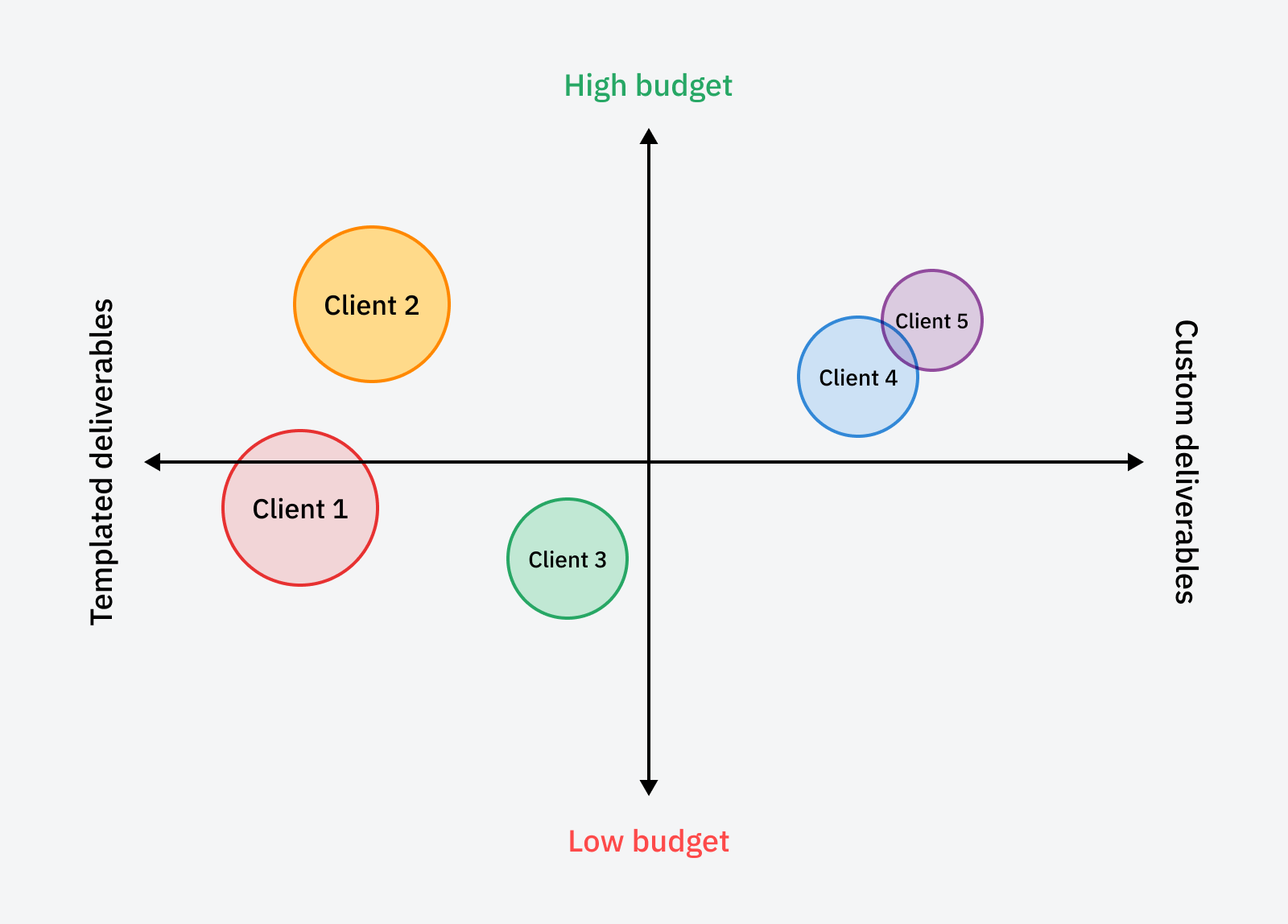
The budget of a client often dictates the level of customization in their SEO reporting. Enterprise clients with substantial budgets expect personalized and detailed reports tailored to their specific needs, unlike smaller clients with limited budgets.

Thus, there are two primary types of client reports: Small-Medium Business (SMB) SEO reports and Enterprise Business SEO reports. Before delving into the specifics, let’s explore the key differences between SMB and enterprise SEO reporting.
| Element | Small-medium business (SMB) SEO reporting | Enterprise business SEO reporting |
|---|---|---|
| Scope | Usually, one domain in one business category | Can have multiple domains, territories, and business categories |
| Target audience | Site owners, marketing team | Marketing team, development team, senior stakeholders, other teams |
| KPIs | ROI, website traffic, conversions, leads | Different teams may have different KPIs for SEO |
| Recommendations | High-impact changes that are easy to implement | Incremental changes that provide long-term growth |
SEO reports for SMBs typically comprise of SEO dashboards, periodic reports, and client presentations. These reports are often automated to streamline the reporting process. Leveraging tools like Google Looker Studio can simplify SEO reporting for agencies.
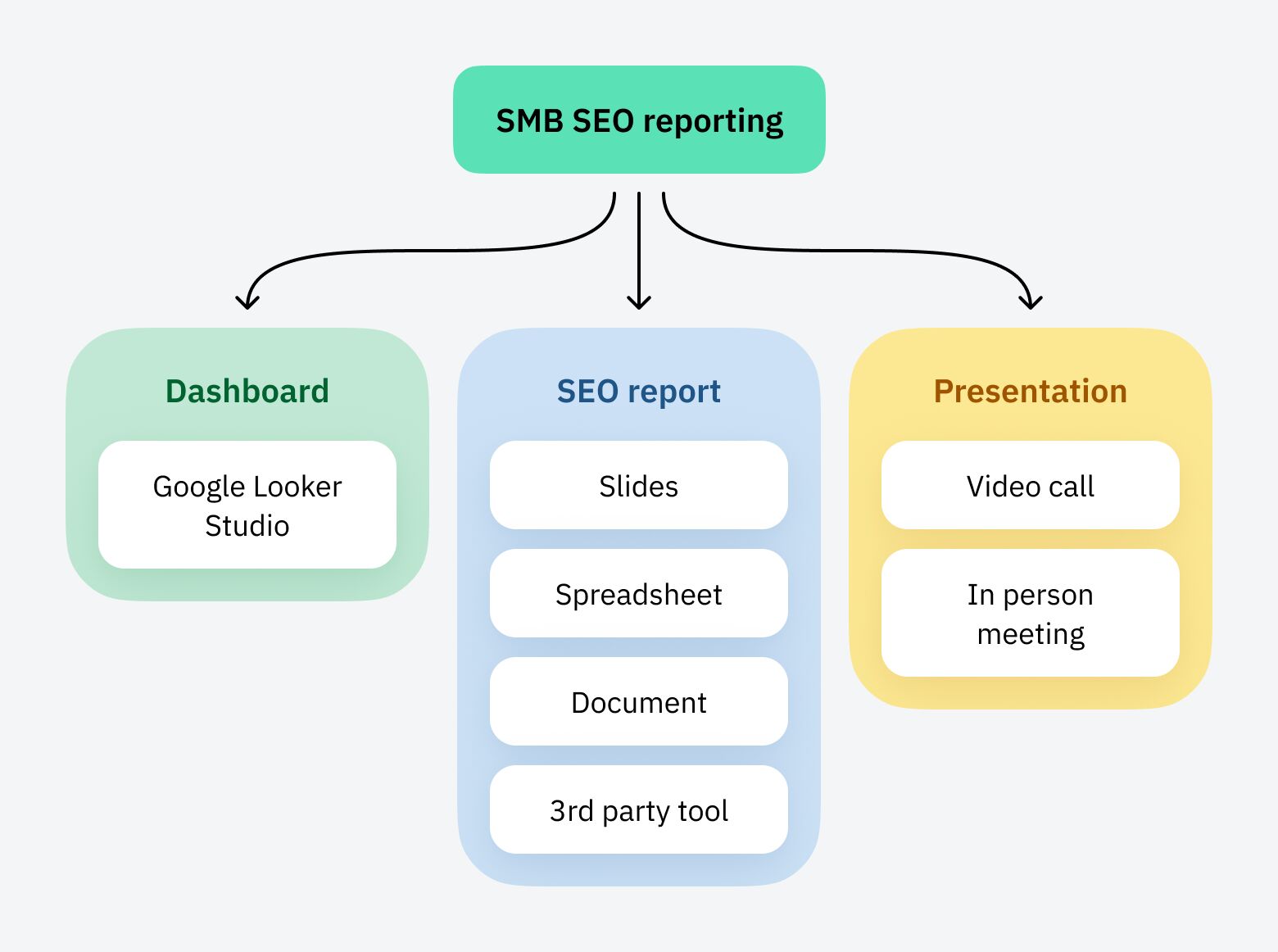
Tip
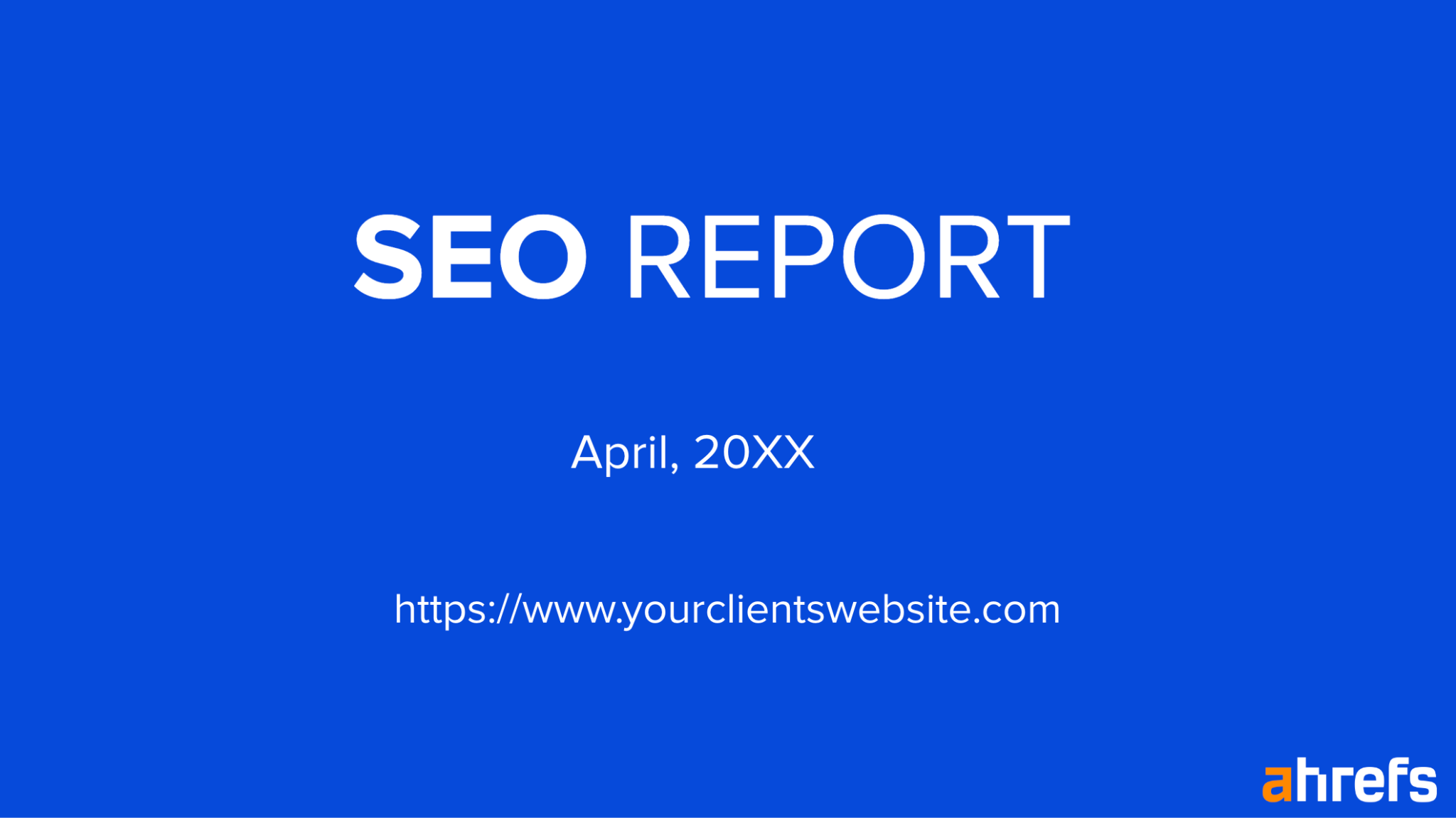
When it comes to enterprise SEO reporting, the approach is more nuanced. The reporting structure is highly customized based on the client’s preferences, often incorporating advanced tools like Tableau. Enterprise SEO reports focus on delivering detailed insights and high-level performance analysis.
Here are three examples of enterprise SEO reporting structures to provide inspiration:
Media Agency Report Structure #1
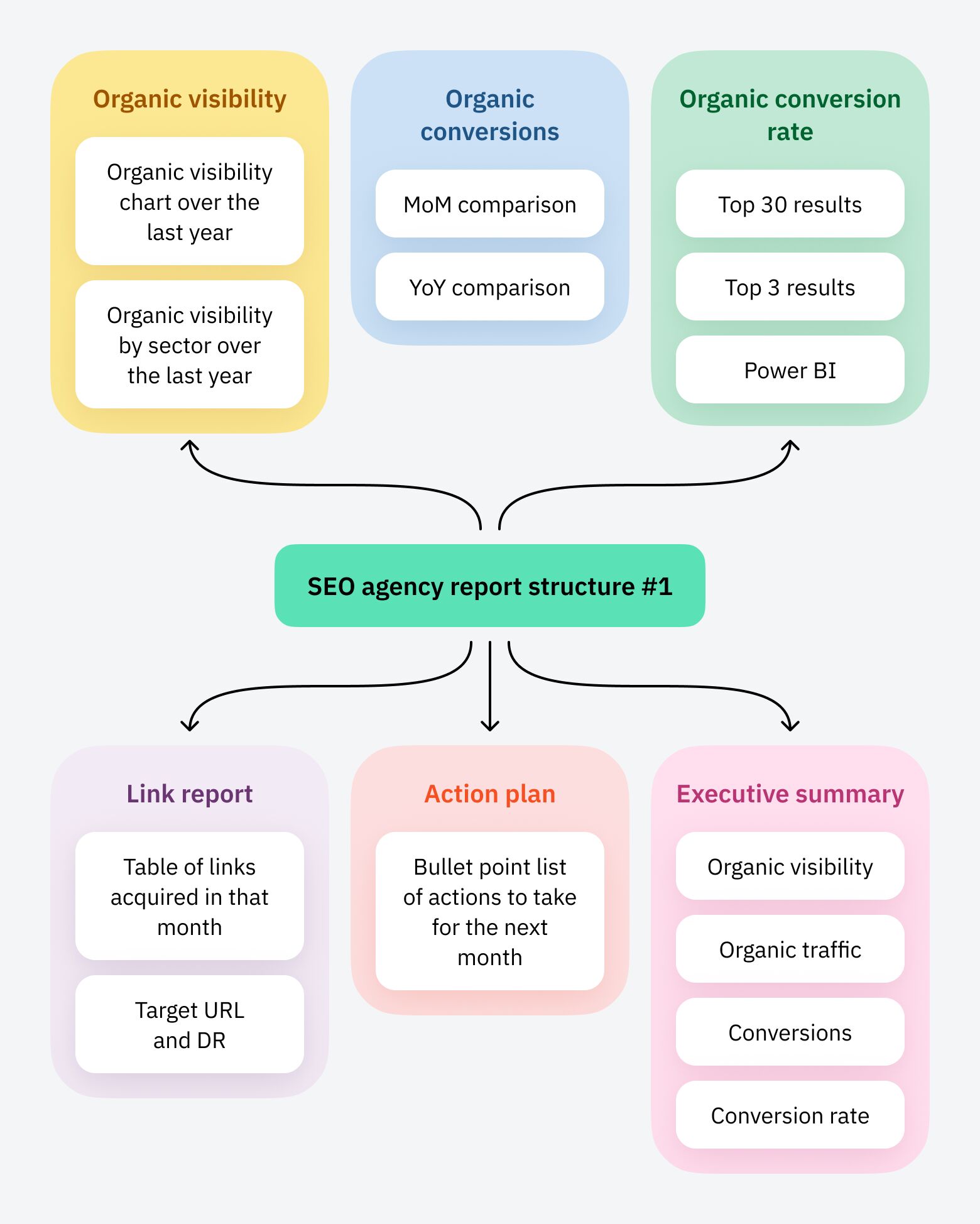
This report emphasizes organic visibility and provides detailed insights on acquired links, tailored for an enterprise-level client.
Media Agency Report Structure #2
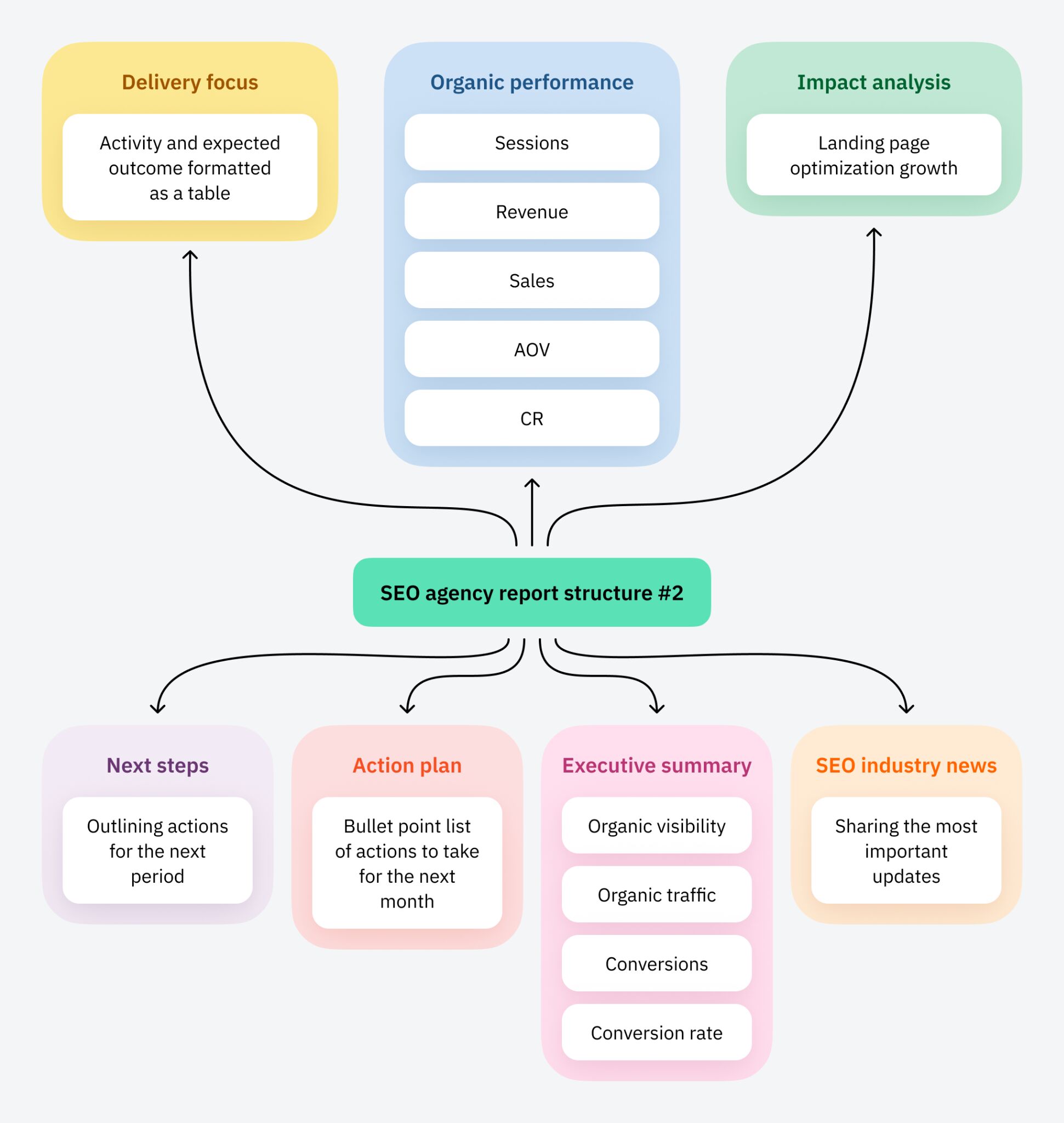
This report focuses on impact analysis and showcases the value of landing page optimizations for the client.
Media Agency Report Structure #3
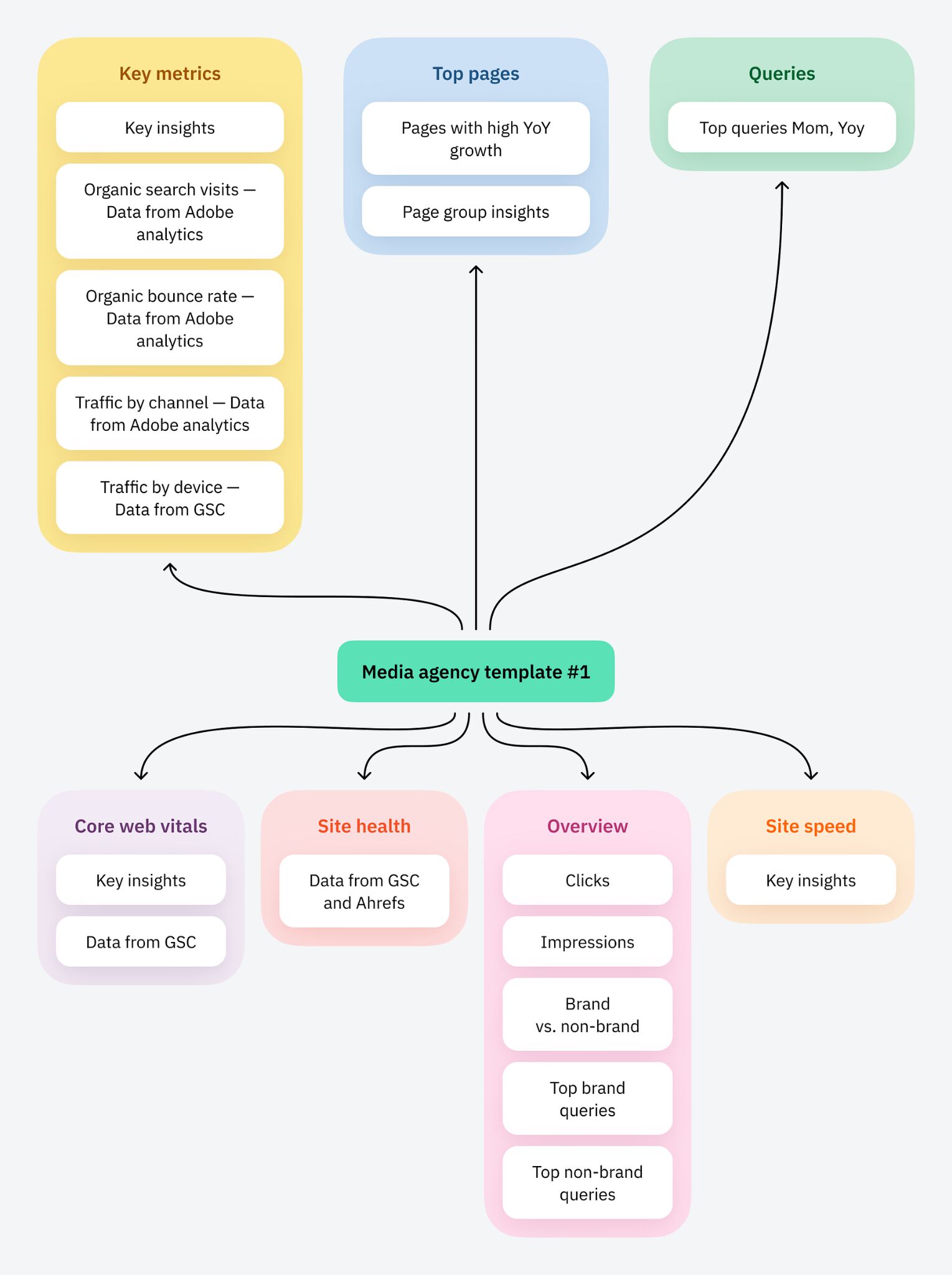
This report is presented in a spreadsheet format, reflecting the client’s preference for a traditional reporting style.
Final Thoughts
Effective SEO reporting is a critical aspect of an agency’s success. By tailoring reports to meet the unique needs of clients, agencies can strengthen client relationships and demonstrate the value of their SEO efforts. Whether working with SMBs or enterprise-level clients, the art of SEO reporting can make or break the client-agency partnership.
For more insights or questions, reach out to me on Twitter.

